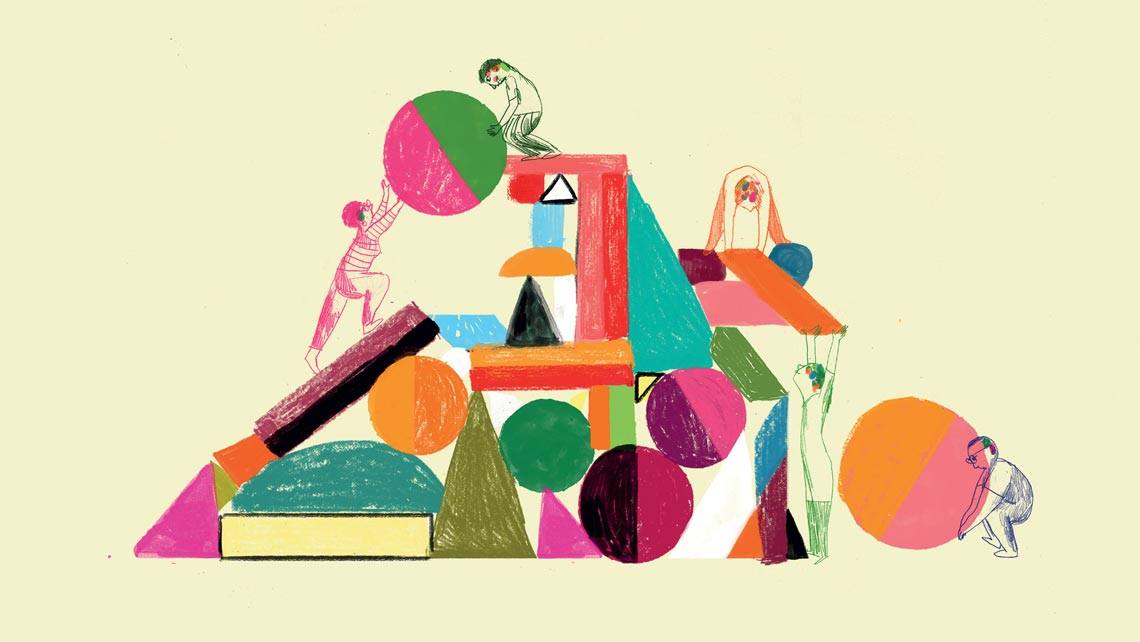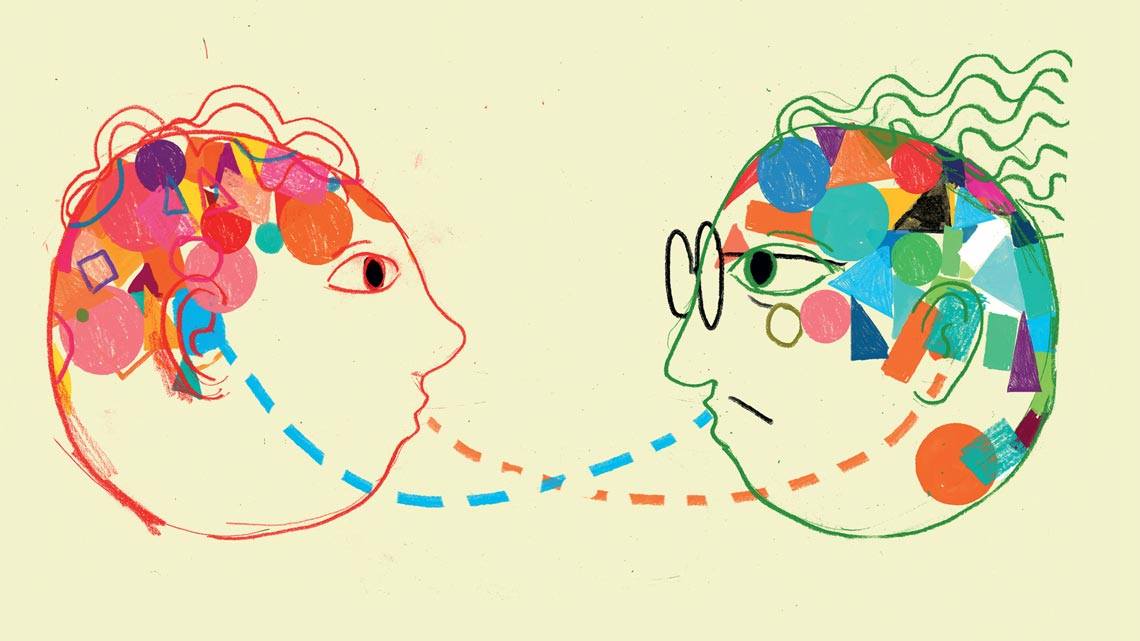From undergraduate research to doctoral studies, the means of communication between advisors and students must be adapted to their individual personalities and the nature of their work. But although every case is unique, there are elements common to all successful relationships, including setting short-, medium-, and long-term goals, exchanging knowledge with other students, and working together to resolve problems related to methodologies, lab experiments, and field research.
In an article published in the journal Nature in December 2021, PhD students from the Department of Civil and Environmental Engineering at the Massachusetts Institute of Technology (MIT) identified a list of ways to facilitate effective communication with academic advisors. The first step for a researcher is to understand their own needs, to identify whether they work better with flexible or strict deadlines and whether they need close guidance or prefer freedom to choose their own research questions. The article also highlights the importance of making time to prepare for individual meetings, defining priorities with advisors, learning how they work, and regularly reviewing long-term goals.
After reading the MIT students’ suggestions, three Brazilian researchers honored by the Nature Awards for Mentoring in Science in 2021 reflected on what they consider good practices, highlighting the need to give students autonomy. Launched in 2005, the annual award recognizes researchers that offer “outstanding scientific guidance” to early-career researchers. Every year, a different region or country is chosen to receive the award. In 2021, Brazil was the selected location.
“I delegate a lot of responsibility to my students, who have to take control of planning their projects from the very start. I give them ideas, I’m open to dialogue, and I demand their presence in the lab, but at the same time I do not control their schedules. I encourage them to make their own decisions. Autonomy is essential,” explains Carlos Menck, a geneticist from the Institute of Biomedical Sciences (ICB) at the University of São Paulo (USP) and one of the 2021 recipients of the Nature award. Over the course of his 40-year career, Menck has supervised 37 doctoral and 14 master’s students, in addition to 15 postdoctoral fellowships. He is currently advising 10 students. “Mutual respect is also essential. The advisor and advisee both need to feel that the relationship is working. It’s a bit like a marriage,” he says.
Alessandra Filardy, head of the Cellular Immunology Laboratory at the Federal University of Rio de Janeiro (UFRJ), was another researcher awarded in 2021. She says that respectful relationships are based on an understanding that students should be treated as professionals, even if they are at the beginning of their academic careers. “That’s why I always try to contact them during business hours and avoid sending them emails at the weekend, as well as encouraging them to take vacations,” she highlights. For Filardy, another premise of working together is autonomy, with advisees encouraged to carry out experiments several times until they get it right. “I try not to interfere, so that they learn from their mistakes. I only limit their attempts if they start to become very costly,” she explains.
 Natália Gregorini
Natália Gregorini
Filardy is currently supervising three undergraduates, two master’s students, two PhD students, a postdoctoral fellow, and a nurse conducting scientific research at her laboratory. She holds individual and group meetings every week. “In individual meetings, I address the more specific technical issues and listen to problems or concerns about the future in the academic environment or the student’s personal life. In group meetings, students present published articles and data that they intend to share at conferences, exchanging knowledge with their peers, which also helps advance their research.”
The immunologist, who does not work in the lab on a daily basis, also likes to include advisees in discussions about administrative decisions, encouraging them to monitor the financial resources needed for their studies and what they spend on each project or piece of equipment. “My team of advisees is responsible for passing on technical knowledge to new students, while I focus on managing joint work. I’m always there to solve problems, whether technical or administrative in nature,” says Filardy, who tries to talk to all lab members before making decisions. She believes this type of dialogue encourages the development of a collaborative environment. “Productivity at work derives from collaboration, not competition,” she stresses. Another strategy she uses is to publicly praise her students, reserving criticism for private conversations to avoid embarrassment.
She also tries to encourage students to complete their education in the lab, even if their final objective is not a career in academia. “I try to show students that scientific research is not only important to those wishing to pursue an academic career—it also opens doors in industry and business,” she explains. By way of example, she tells the story of a student she advised who planned to leave university after completing their master’s degree but changed their mind after receiving an invitation to continue in the lab to do a PhD. “Now, this student is doing a postdoc under my guidance and is one of my main research partners,” she says.
Currently supervising six undergraduates, five master’s students, 11 PhD students, and a postdoctorate, Waldiceu Verri, a pharmacologist from the Biological Sciences Center at the State University of Londrina (UEL), sees the role of an advisor as an active teaching methodology, an idea that facilitates dialogue with inexperienced students. “The amount of pressure I put on each student depends on their individual personality,” says Verri, another of the Brazilian researchers awarded by Nature in 2021. The pharmacologist monitors the experiments carried out by his students at the Biological Sciences Center’s lab on a daily basis, occasionally taking the opportunity to discuss their successes and failures, in addition to the results.
When he cannot keep an eye on the experiments in person, he asks his advisees for regular updates. “I like to be present, especially before and during the experiment, to ensure good planning and execution. I try to help my students develop their research path, but without imposing on their decisions. I think this helps them structure their own critical thinking.” When experiments are unsuccessful, Verri suggests changing one element at a time before redoing them, to identify the cause of the error by process of elimination. “I also encourage and support students to do a sandwich PhD, so that they can expand their repertoire and benefit from unique experiences,” says Verri.
“Many students complain about a lack of effective guidance in their academic career. The few studies carried out on this topic highlight supervision as a key issue in the graduate system,” says Eliete Correia dos Santos, a linguist who teaches Archival Science at the State University of Paraíba (UEPB) and the Graduate Languages and Teaching Program at the Federal University of Campina Grande (UFCG). In a study that identified and catalogued good practices in supervision on UFCG’s Graduate Languages and Teaching Program, Santos revealed the key elements of the role. “Defining a clear objective, planning activities based on the time available, being disciplined, focused, and committed, and giving students autonomy are some of the key points,” summarizes Santos, who is also a professor on UEPB’s Graduate Teacher Training Program. She emphasizes that student autonomy is linked to how responsibly they are supervised. “It is up to the advisor to monitor the advisee’s progress, taking their weaknesses into account and encouraging them to face new challenges,” she explains. With two undergraduates and eight master’s students, she holds weekly meetings to set delivery targets, which are updated by the students themselves every seven days. “If their activities are not systematized and continuous, there is a tendency for advisees to get lost. Given the issue of time, pursuing continuity across the various phases of a study, from data collection to analysis, is crucial to the effectiveness of the process,” wrote the linguist in an article describing the results of her work.
Scientific article
SALGADO-SALÓ, L. et al. Managing up: How to communicate effectively with your PhD adviser. Nature. Dec. 2021.
Book
SANTOS, E. C. “Desafios da orientação na pós-graduação brasileira: Relatos da experiência na Posle/UFGC.” In: ARAÚJO, D. L. et al. (orgs.). Caminhos do Programa de Pós-graduação em Linguagem e Ensino: Identidade, estudos e formação de pesquisadores. Campina Grande: Edufcg, 2019.
